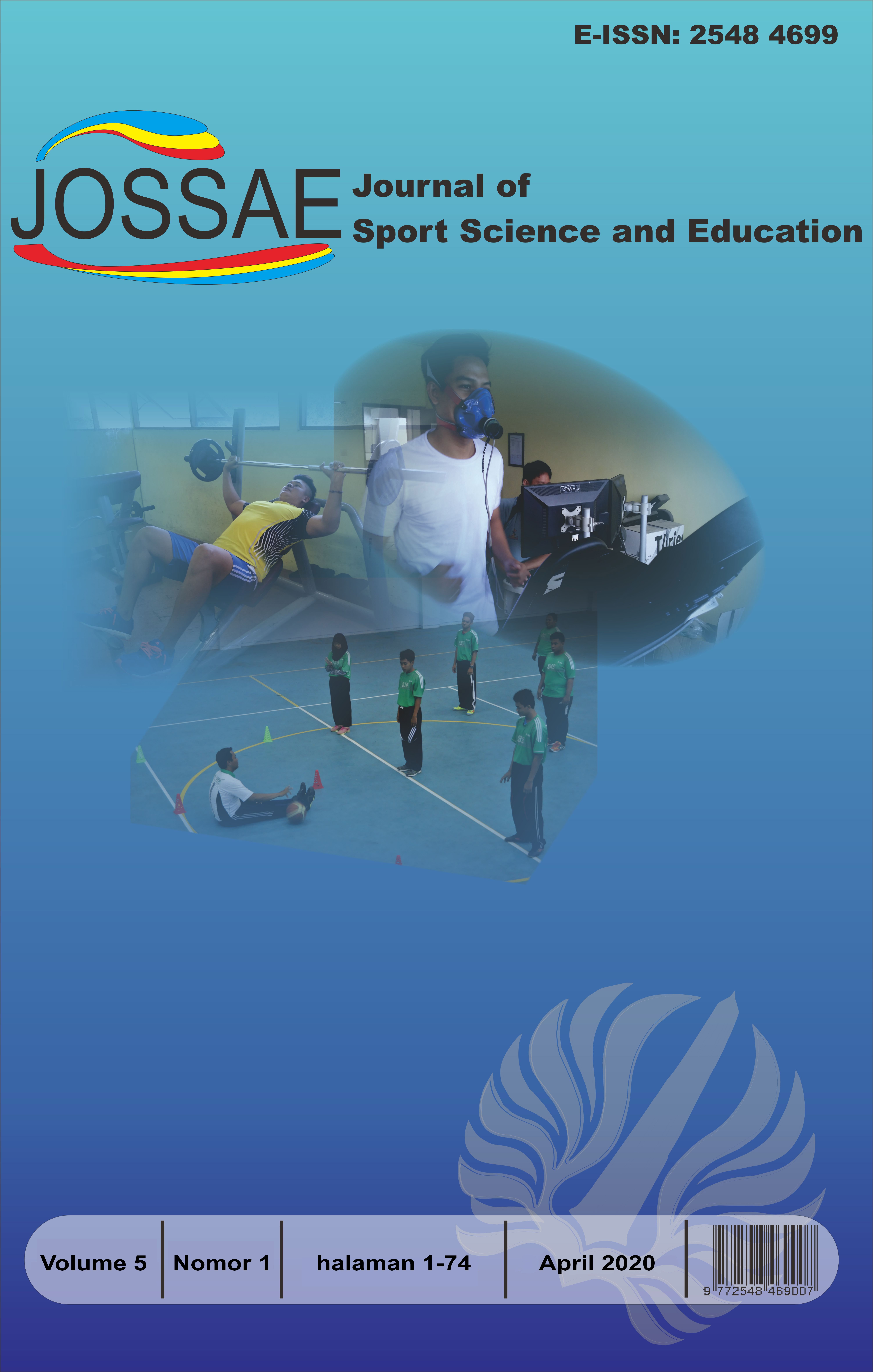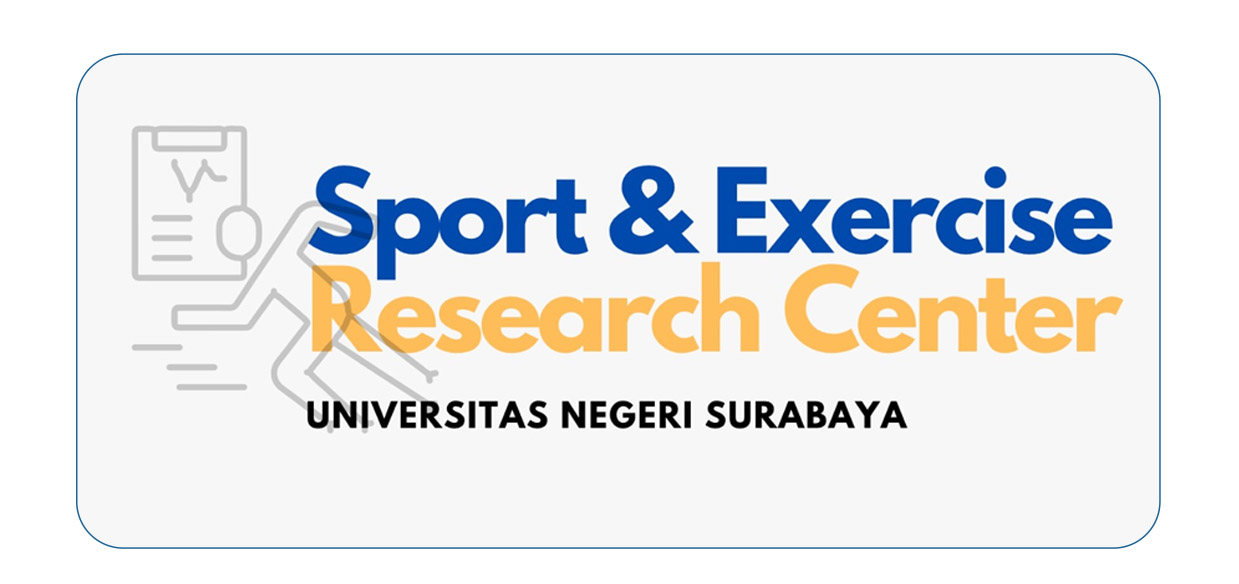Dukungan Sosial Orang Tua dan Self-Esteem (Penelitian Terhadap Tim Kabupaten Sumedang di Ajang O2SN Jawa Barat)
DOI:
https://doi.org/10.26740/jossae.v5n1.p1-11Keywords:
elementary school students, parental social support, self-esteemAbstract
This study aims to determine the effect of parental social support on the district team. sumedang in the O2SN elementary school level in West Java. The method used is an associative method with survey design. The research design used is cross-sectional. The instrument used was a questionnaire for Parents' Social Support and the Hare Self-esteem Scale (HSS). The research location is in Sumedang Regency. The population is elementary students who are members of the district team. Sumedang to attend the O2SN West Java Province. The results showed that social support has a great influence on self-esteem. This is evidenced by the significance test of variable X to Y which shows the results of Y = a + b X1 = 222,109 + 0.729 X1 The percentage obtained between X to Y is 0.405 x 100% = 40.5%. Parental social support has a significant influence on self-esteem. This is evidenced by an increase test that shows the value of tcount with ttable, it turns out that tcount = 4.568 is greater than ttable = 1.697, or the value of sig. smaller than the 0.05 significance level that is 0.047, so it can be concluded that the Social Support (X) regression equation against Self esteem (Y) is significant. The conclusion of the research shows that there is a great influence given by the social support of parents on children's self esteem.
References
Abdel-Khalek, A. M. (2016). Introduction to the psychology of self-esteem. Self-Esteem: Perspectives,
Influences, and Improvement Strategies, 117.
Akbar, R. (2001). Hawadi. Psikologi Perkembangan Anak: Mengenal Sifat, Bakat, dan Kemampuan Anak.
Jakarta: Grasindo.
Caron, A., Weiss, B., Harris, V., & Catron, T. (2006). Parenting behavior dimensions and child psychopathology: Specificity, task dependency, and interactive relations. Journal of Clinical Child
and Adolescent Psychology, 35(1), 3445.
Clement, D., & Shannon, V. R. (2011). Injured athletes perceptions about social support. Journal of Sport Rehabilitation, 20(4), 457470.
Estes, A., Munson, J., Dawson, G., Koehler, E., Zhou, X.-H., & Abbott, R. (2009). Parenting stress and psychological functioning among mothers of preschool children with autism and developmental delay. Autism, 13(4), 375387.
Fischer, J., & Corcoran, K. (2007). Measures for clinical practice and research: A sourcebook volume 1: Couples, families, and children (Vol. 1). Oxford University Press.
Fisher, A., Reilly, J. J., Kelly, L. A., Montgomery, C., Williamson, A., Paton, J. Y., & Grant, S. (2005).
Fundamental movement skills and habitual physical activity in young children. Medicine &
Science in Sports & Exercise, 37(4), 684688.
Hurlock, E. B. (2001). Developmental psychology. Tata McGraw-Hill Education.
Lengkana, A. S. (2013). Pengaruh Kidsathletics Terhadap Self-Esteem Dan Kebugaran Jasmani: Studi Ex Post Facto pada Siswa Sekolah Atletik Pajajaran. Universitas Pendidikan Indonesia.
Linver, M. R., Brooks-Gunn, J., & Kohen, D. E. (2002). Family processes as pathways from income to young childrens development. Developmental Psychology, 38(5), 719.
Maksum, A. (2012). Metode penelitian dalam olahraga. Solo: Unesa University Press.
Manning, M. A., Bear, G. G., & Minke, K. M. (2006). Self-Concept and Self-Esteem.
Marsh, H. W. (1990). A multidimensional, hierarchical model of self-concept: Theoretical and empirical justification. Educational Psychology Review, 2(2), 77172.
Mbong, C. F. (2017). Parental Involvement in Youth Sports and Physical Activities.
Mulyadi, S., Rahardjo, W., & Basuki, A. M. H. (2016). The role of parent-child relationship, selfesteem, academic self-efficacy to academic stress. Procedia-Social and Behavioral Sciences, 217, 603608.
Myers-Clack, S. A., & Christopher, S. E. (2001). Effectiveness of a health course at influencing preservice teachers attitudes toward teaching health. Journal of School Health, 71(9), 462466.
Revenson, T. A., & Gurung, R. A. R. (2019). Handbook of health psychology. Routledge.
Setyaningrum, A. (2015). Pengaruh dukungan sosial orang tua terhadap motivasi berprestasi siswa kelas v sekolah dasar. basic education, 4(17).
Stainback, S., & Stainback, W. (1988). How to help your child succeed in school. Simon & Schuster.
Sumoprawiro, S. (2009). Prestasi Olahraga Indonesia. Online At.
Susanto, D. N., Sulastri, B., pM Kes, S. K., Listyorini, D., & S Kep, N. (2013). Hubungan Antara Dukungan Negatif Orang Tua Dengan Perilaku Merokok Remaja Di Desa Puro Kecamatan Karangmalang Kabupaten Sragen. Universitas Muhammadiyah Surakarta.
Wojtas, K., Oskedra, I., Cepuch, G., & ?widerska, E. (2014). The level of negative emotions, coping with stress and social support for parents of children suffering from epilepsy. Folia Medica Cracoviensia, 54(1), 7986.
Woody, R. H. (2005). The Police Culture: Research Implications for Psychological Services.
Professional Psychology: Research and Practice, 36(5), 525.
Downloads
Published
How to Cite
Issue
Section
 Abstract views: 2770
,
Abstract views: 2770
, PDF Downloads: 3160
PDF Downloads: 3160









